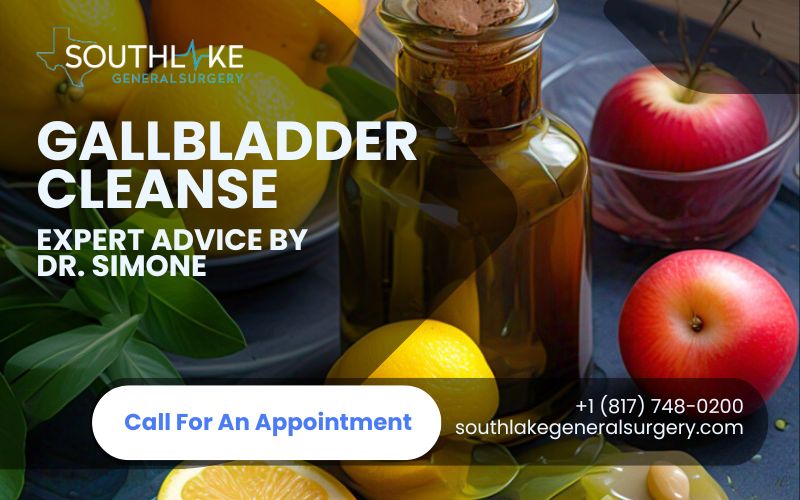A gallbladder cleanse is a widely recognized natural approach aimed at enhancing gallbladder health and preventing issues such as gallstones. This guide by Dr. Simone examines the effectiveness of these cleanses, the underlying science, and important considerations for those interested in trying this approach.
For those looking to enhance digestive health or address gallbladder issues, this informed guidance provides valuable insights to support informed health decisions.
Key Highlights
- Find expert advice on gallbladder cleanse and how well they work.
- Learn what the gallbladder does and problems like gallstones.
- Look into the science of gallbladder cleanses and what benefits they claim to offer.
- Check the safety of gallbladder cleanses and any risks they might have.
- Know the right time to see a healthcare professional for gallbladder issues.
Understanding the Gallbladder and Its Function
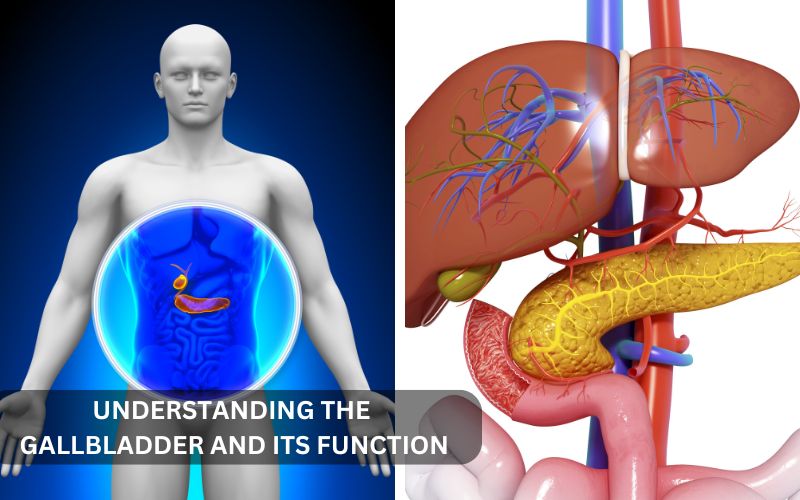
The gallbladder is a small, pear-shaped organ that is found just beneath the liver in the upper right area of the abdomen. The gallbladder is responsible for storing bile, which is a fluid made by the liver.
Bile plays a crucial role in helping us digest and absorb fats effectively. It contains unique salts that help break down fats into smaller components. This enhances the effectiveness of digestive enzymes.
When we enjoy foods that have fats, the gallbladder gives a little squeeze! The bile duct is responsible for transporting bile to the small intestine. This release is perfectly timed!
Good digestion is really important! This process also assists in preventing fat from accumulating in the digestive system.
Common Gallbladder Issues and Symptoms
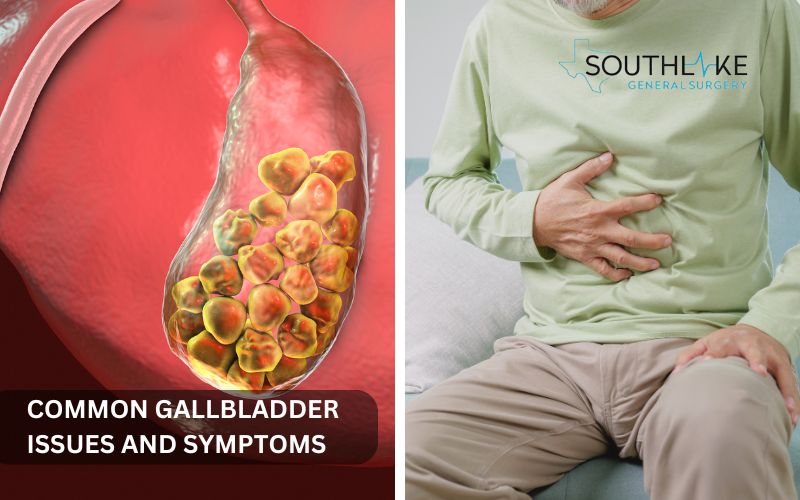
Gallstone disease, often referred to as cholelithiasis, is a frequent concern related to the gallbladder. Gallstones are hard deposits that can form in the gallbladder, leading to this condition.
Gallstones come in various sizes and types. Some are composed of cholesterol, while others include bilirubin, a pigment that forms when red blood cells break down.
- Initially, gallstones may not show any signs or symptoms.
- When symptoms appear, they may be present as a sharp pain in the upper right side of the stomach. This discomfort might also extend to the back or shoulder area.
- Enjoying fatty meals might lead to these symptoms. It’s possible that you could experience nausea, vomiting, and indigestion too.
Cholecystitis occurs when the gallbladder becomes inflamed. This can occur due to gallstones or various other factors. If you’re experiencing strong stomach pain, a fever, and soreness in the upper right side of your abdomen, it’s essential to pay attention to these symptoms.
Cholecystitis, if left untreated, can lead to life-threatening complications that necessitate immediate medical attention.
The Science Behind Gallbladder Cleanses
Gallbladder cleanses, also known as liver flushes, are believed to assist in eliminating gallstones by facilitating their passage out of the body through stool.
That said, there isn’t a lot of scientific evidence backing this idea. Being cautious with alternative treatments is essential. It’s a good idea to consult with a healthcare professional first, particularly if you have any health concerns.
How Gallbladder Cleanses Claim to Work
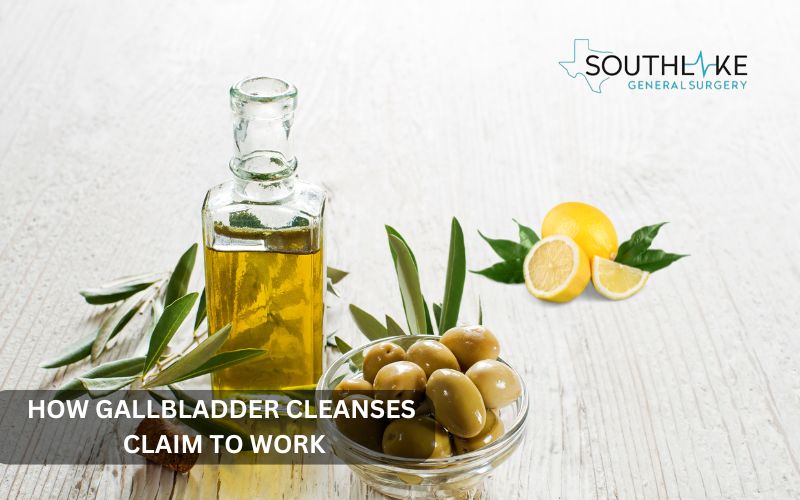
There are various methods for gallbladder cleanses, with many emphasizing a combination of ingredients thought to assist in eliminating gallstones. A popular approach involves fasting followed by enjoying a generous serving of olive oil and lemon juice.
- Supporters believe that combining olive oil and lemon juice can promote smoother bile flow.
- Olive oil is believed to help stimulate the gallbladder’s activity.
- Lemon juice is thought to assist in breaking up stones, potentially making it easier to pass them.
It’s useful to be aware that these ideas often don’t have solid scientific support. There’s not much research out there regarding how these cleanses impact the body. Additionally, there isn’t sufficient evidence to support the idea that they can effectively remove gallstones.
Reviewing the Evidence: Do Cleanses Help?
Gallbladder cleanses are becoming more popular, but it’s important to note that there isn’t much solid scientific evidence to support their effectiveness.
According to reliable experts, such as Dr. Valeria Simone MD, a board-certified general surgeon, there isn’t sufficient scientific evidence to support the idea that these cleanses can effectively remove gallstones.
- Personal stories may sometimes be mistaken for genuine success in eliminating gallstones.
- When experts examine stool after a cleanse, they frequently find lumps of undigested oil or other substances rather than actual gallstones.
- Feeling better after a cleanse could be due to a placebo effect, or it might indicate a genuine change in the body.
Just like with any other treatment, it’s important to do your research thoroughly. Talking to a healthcare expert is a great idea!
Relying solely on personal stories, without solid scientific evidence, can lead to misunderstandings. This could have a negative impact on your overall health.
Evaluating the Safety of Gallbladder Cleanses
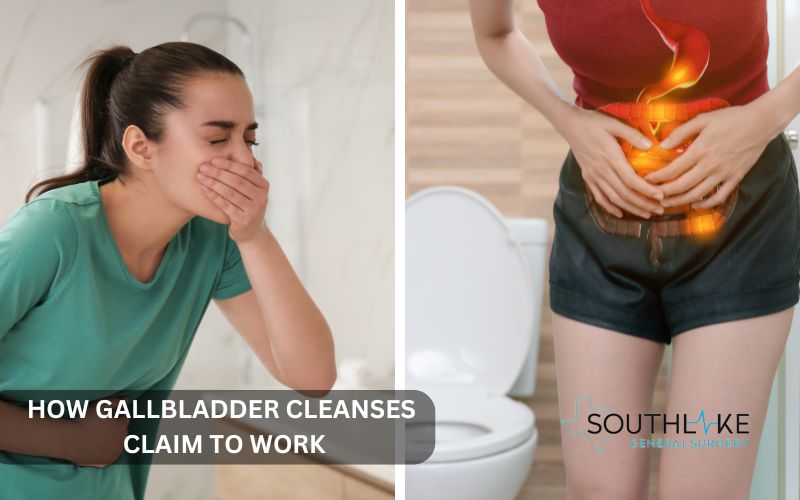
Many people who support gallbladder cleanses view them as a natural and safe option. It’s essential to note that they can come with their own health hazards and risks.
Currently, there aren’t any established methods or scientific evaluations in place to guarantee safety. At this point, we are still unsure about the long-term effects.
Individuals who have health issues or are taking specific medications might encounter additional risks. These can vary from slight discomfort to more significant issues. This is a case where getting tailored medical advice is crucial.
Potential Risks and Side Effects
Gallbladder cleanse is often described as a natural remedy. Still, there’s a chance that they could cause harm to your body. A common issue many people experience is stomach upset, which can include:
- Diarrhea
- Nausea
- Vomiting
- Stomach cramps
Dehydration can be another issue that arises with these cleanses. Frequent bowel movements can lead to a loss of fluids and essential electrolytes. Staying hydrated is extremely important! The following conditions are particularly relevant for older people and those experiencing kidney issues.
- Nausea
- Diarrhea
- Stomach cramps
- Dehydration
- Muscle weakness
- Muscle weakness
- Irregular heartbeats
- Seizures
When to Consult a Healthcare Professional
If you’re experiencing significant or ongoing pain in your belly, it’s recommended to consult a doctor as soon as possible.
If you’re experiencing pain in the upper right side of your stomach, it could indicate an issue with your gallbladder. If issues arise, it is critical to have it evaluated as soon as possible to prevent the need for gallbladder surgery.
- Rapid weight loss can occasionally lead to health concerns, such as gallbladder problems.
- If your weight suddenly drops without any noticeable changes to your eating habits or exercise regimen, it’s important to consult a doctor.
- You can get advice on what to do and an explanation from your doctor.
Maintaining good general health is paramount. Any time you have questions about your gallbladder or are thinking about having it flushed, it’s recommended to talk to a doctor.
They are able to evaluate your condition, spot dangers, and suggest measures that will benefit your health the most.
Conclusion
Gallbladder cleanse is popular among those who practice alternative medicine. Having said that, there is limited evidence from scientific studies to support the effectiveness of these cleanses.
These regimens should be approached with caution due to the potential health concerns and lack of demonstrated benefits.
If you’re experiencing issues with your gallbladder, it’s best to reach out to a medical expert. They can help you avoid any potential complications down the line.
For an accurate diagnosis and treatment, consult a medical professional if you experience symptoms such as stomach pain or gastrointestinal problems.
Prioritize your general well-being by maintaining a healthy lifestyle that includes frequent exercise, a balanced diet, and other preventative measures.
When considering your gallbladder health, it’s a great idea to consult trustworthy sources like the National Institute of Diabetes or Dr. Valeria Simone of Southlake General Surgery in Texas, USA.
Make an Appointment
To schedule a meeting with Dr. Valeria Simone, MD, at Southlake General Surgery in Texas, USA, please call +1 (817) 748-0200.
Dr. Simone specializes in gallbladder problems, focusing on conditions such as gallstones, gallbladder inflammation, and so on. She brings a wealth of experience in reviewing alternative medicine as well as performing gallbladder surgery.
Dr. Simone is here to provide you with tailored advice on gallbladder cleanses and helpful tips to enhance your digestive health. Schedule your appointment today and start your path to improved gallbladder health!
Frequently Asked Questions
Can a gallbladder cleanse eliminate gallstones?
Currently, no scientific evidence indicates that cleanses can effectively remove gallstones. Although they work in a way that’s somewhat like a laxative, there isn’t any evidence at this time to suggest that they can actually break down or remove gallstones from the bile duct or in the stool.
What are natural ways to support gallbladder health?
Keeping a healthy weight is essential for ensuring your gallbladder stays in good working order. Maintaining a balanced diet rich in fiber and low in saturated fats can be quite advantageous! Many individuals choose to take nutritional supplements, such as bile salt tablets. Talking to your physician before beginning any new supplement routine is an excellent idea!
Is there anything you can eat or drink that helps the gallbladder work better?
Research has not yet pinpointed any specific foods or beverages that aid gallbladder function. Drinks like apple or grapefruit juice, or even just a mix of olive oil and lemon juice, are often recommended. Unfortunately, the scientific evidence for these assertions is limited. It is very recommended to prioritize a nutritious diet.
How often should someone perform a gallbladder cleanse?
Gallbladder flushes are not supported by sufficient scientific evidence. Additionally, they may pose health hazards. Consequently, there are no set schedules regarding when to do them. Following time-tested procedures is the surest way to keep your gallbladder in good working order. Medical experts recommend this course of action.
How can I tell whether my gallbladder cleanse is doing its job?
If you feel better, like when your stomach ache goes away, or notice a change in the color of your feces, it does not indicate that gallbladder cleanse is effective. Bilirubin levels and other vital indicators can reveal your gallbladder’s health. Reaching out to a medical expert is a great choice!
Medically Reviewed By: Dr. Valeria Simone MD
Board-certified General Surgeon at Southlake General Surgery, Texas, USA.
Follow us on Facebook and YouTube.
References:
- “Eating, Diet, & Nutrition for Gallstones.” National Institute of Diabetes and Digestive and Kidney Diseases, 22 Feb. 2024, www.niddk.nih.gov/health-information/digestive-diseases/gallstones/eating-diet-nutrition.
- “Definition & Facts for Gallstones.” National Institute of Diabetes and Digestive and Kidney Diseases, 22 Feb. 2024, www.niddk.nih.gov/health-information/digestive-diseases/gallstones/definition-facts.
- “Gallstones.” National Institute of Diabetes and Digestive and Kidney Diseases, www.niddk.nih.gov/health-information/digestive-diseases/gallstones.
- “Dieting & Gallstones.” National Institute of Diabetes and Digestive and Kidney Diseases, 22 Feb. 2024, www.niddk.nih.gov/health-information/digestive-diseases/gallstones/dieting.
- Ewald N, Hardt PD. Flushing stones? “Leberreinigung” und “Gallenspülungen” [Flushing stones? “Liver purging” and “gallbladder lavage”]. Dtsch Med Wochenschr. 2009 Sep;134(36):1774. German. doi: 10.1055/s-0029-1234016. Epub 2009 Aug 28. PMID: 19718602.
- Gaby AR. Nutritional approaches to prevention and treatment of gallstones. Altern Med Rev. 2009 Sep;14(3):258-67. PMID: 19803550.
- Gaby AR. Nutritional approaches to prevention and treatment of gallstones. Altern Med Rev. 2009 Sep;14(3):258-67. PMID: 19803550.
- Sies CW, Brooker J. Could these be gallstones? Lancet. 2005 Apr 16-22;365(9468):1388. doi: 10.1016/S0140-6736(05)66373-8. PMID: 15836886.

